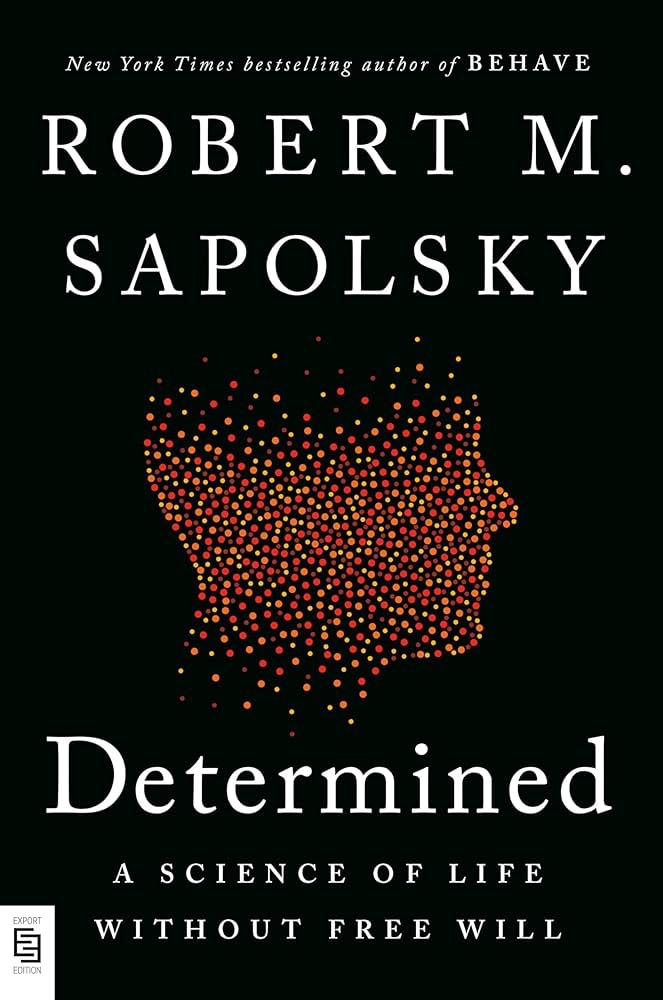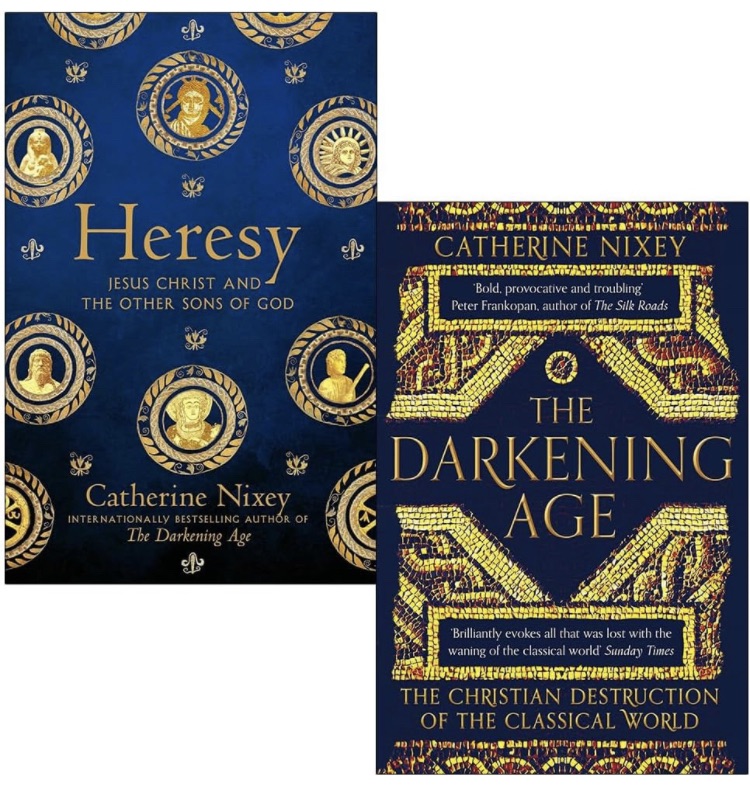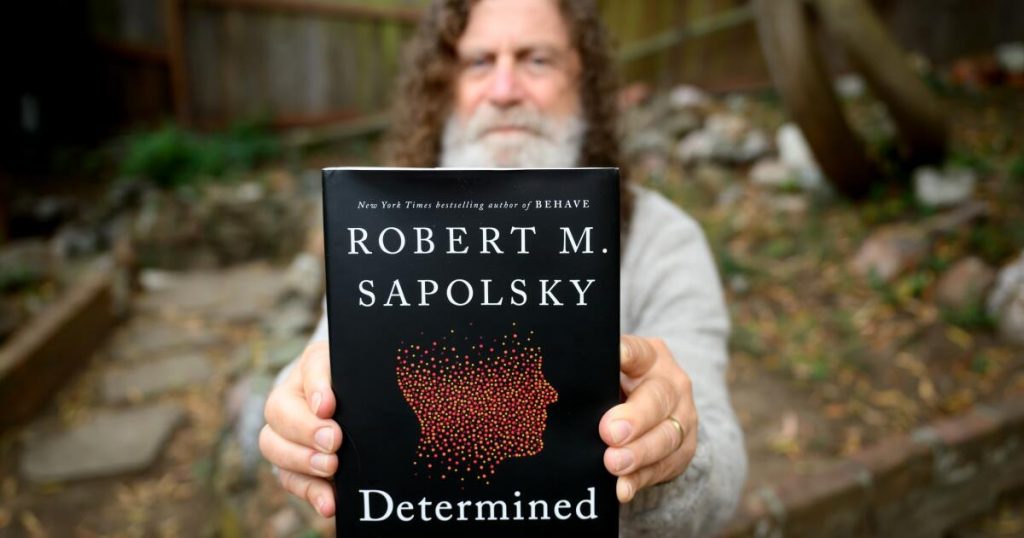
I was looking at some of the Guardian’s ‘Book of the Month’ articles yesterday, and stumbled on a number of titles I’d like to read, such as these:

On the Wikipedia page about him, he’s quoted thus: ‘there is no free will, or at least that there is much less free will than generally assumed when it really matters.’
I’ve yet to read his book. I think I will read it. But in the meantime, I’d like to put down my reaction to just a few of the basic ideas that strike me, as a reaction to purely learning of the books existence and central theses.

But first… I like a number of things about Sapolsky, including this statement: ‘… around age thirteen or so. In my adolescent years one of the defining actions in my life was breaking away from all religious belief whatsoever.’
That chimes so well with my own experience. Brought up in a very Christian (of sorts) household, I’d say that between 11-13 years of age, possibly earlier, I started to transition from occasionally wondering if all this religious stuff was just nonsense – as soon as I could think I had started to suspect as much – to seriously questioning it for myself, and finally abandoning it altogether.
Having read a couple of reviews of Determined, my immediate reaction is that the old bugbear of semantics, or definitions, might (as it so often is) be a crucial matter.
On one immediate and, I would think, blindingly obvious (to the point of redundancy), level… of course everything is determined what immediately precedes it. But there’s a grey area between the possibilities every moment creates, and actually realised eventualities, as brought about by human agency.
I can well imagine, from both intuitive perspectives, and also my limited reading in the area of cognitive science, that our consciousness is both much more limited and yet way more powerful than popularly understood.
I’m anticipating that Sapolsky and the specialist research he might cite will look at what’s going on in the brain when we believe we’re making conscious decisions. And that’s an area whereof I do not know, and therefore shall not speak!
Having said that. On the everyday lived level of human experience, I would argue that there has to be free will. It’s perhaps a bit like the way physics might tell us, if we burrow sufficiently deeply, that solids are not in fact solid, after all. On some very deeply investigated level, that may be the truth. But if you drive into a brick wall…
So it becomes, possibly – I really ought to read the book! – a question (or whole field of questions/inquiry) of what we mean by or understand as ‘free will’.
I could waffle endlessly about what I mean, in common everyday terms, about my idea of what free will is. I might choose to look at recent issues in my life, like the choice of whether or not to drink alcohol. And, as far as the term free will has any ordinary meaning to me, I’d say I’m exercising some in this respect.
Are the factors that lead me to stop determining, or merely influencing?
Another angle I might come at it from would be that ol’ chestnut about the wide range of differing responses to the same events that different folk evince. Now of course you can unpick it all – and I suspect that’s exactly what Sapolsky does – and say trauma survivor A handles it better because… whereas B succumbs because their history… etc.
But it can also surely be argued that one can learn and cultivate an ability to choose how to react to things differently. You find your natural reaction to X is causing difficulties, so you adapt. Potentially choosing to change how you react (or adopting some other strategy).
Well… I find I’m compellingly intrigued by all this, and that rather than speculate too much about it all, I’ll try and get around to reading Sapolsky’s book, and see what exactly he’s saying.
